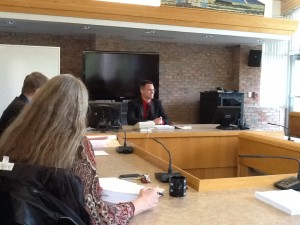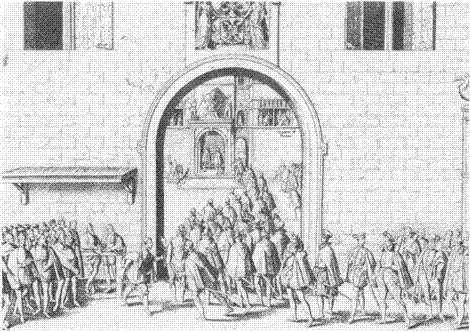Klaus Graf got the following positive response from Lara Unger, Digital Conversion Supervisor, in reply to his request about moving up items in the digital queue at the University of Michigan:
In fact, we frequently digitize materials for scholars in Europe, particularly music scores. We do have a limit per month per requestor, and how long it takes is dependent on what other projects are being worked on, vacations, etc.
…
It can take anywhere from a week to 4 or more weeks.
…
The University has plans to digitize the majority of the materials in its collections. This is why we can agree to not charge for the service, we are going to digitize it anyway, its just a question of when it gets in the queue. A patron request moves an volume up to the front of the line.
I have heard similar anecdotes elsewhere. So when in doubt, it doesn’t hurt to ask.
Google Books, by the by, seems to still have a mechanism for suggesting corrections or rescans for the numerous problems that appear in their books. The older method was convenient, but seems to have been phased out in the new interface. Now, if you try to click on “Help” when viewing a book page (available under the “gear” dropdown menu on the top right when navigating in a book), there is a link under “Help” for “Known Issues – Books,” under which there is another set of menus under “Book quality issues.” If you click on that, you can click on “Book has missing pages, typos, or other kinds of error,” which recommends reporting the error(s) via a form. The form doesn’t seem to work, however.
You can get to this page from other places on Google Books, but it seems to be intended for authors and copyright holders. Also, I recommend using the report error features on Google Books judiciously. Google has been known to pull the entire book out of digital circulation while addressing the reported error. So make sure you’ve gotten whatever copy you need to use in the meantime if it is a source that you want to have access to while any bad scan issues are being addressed.


